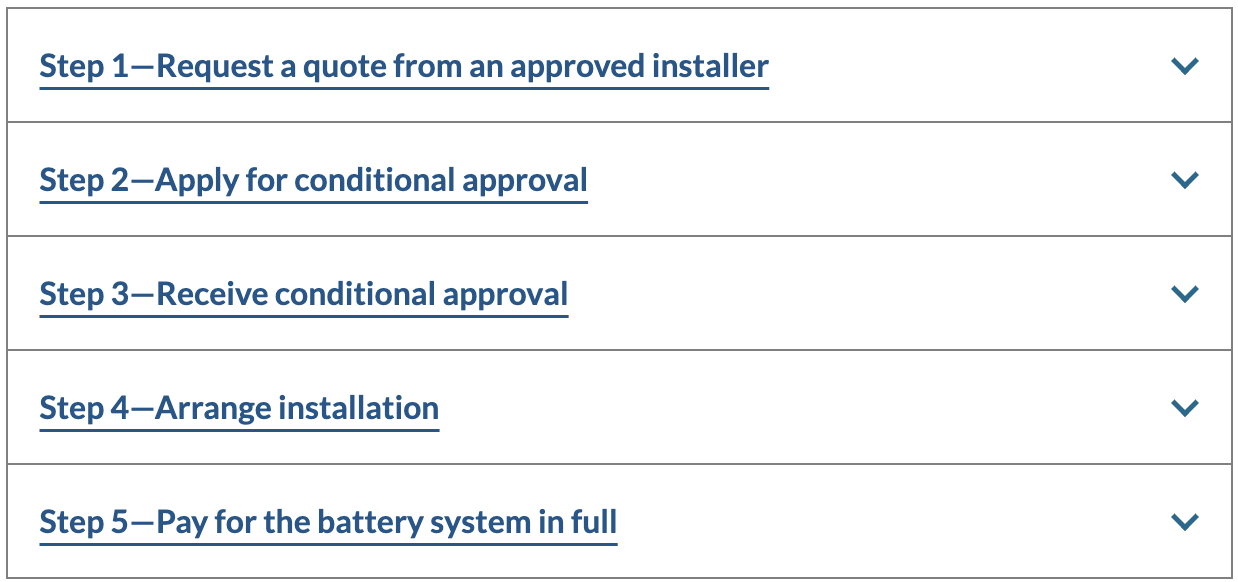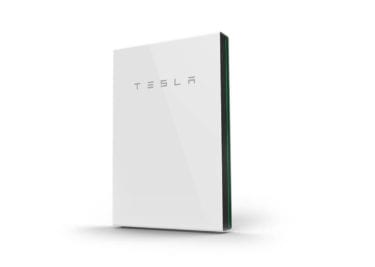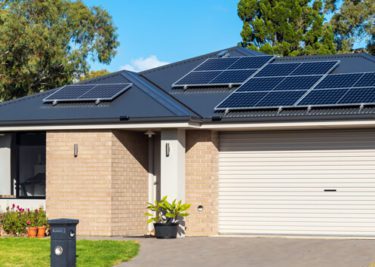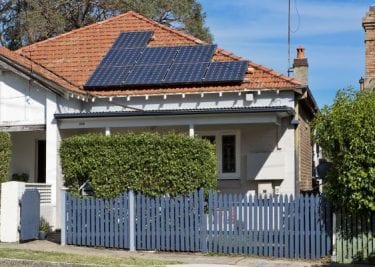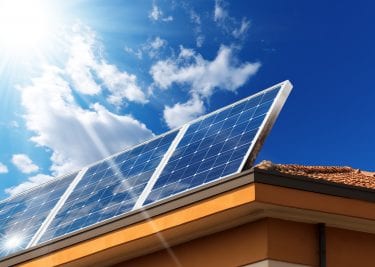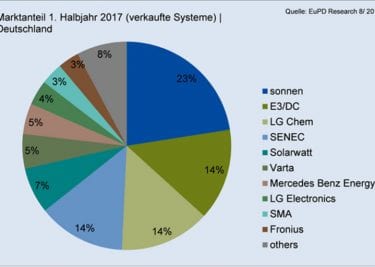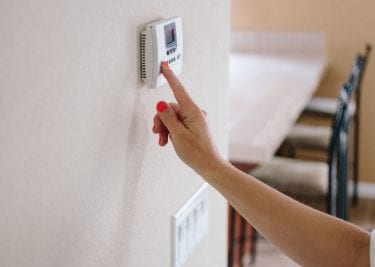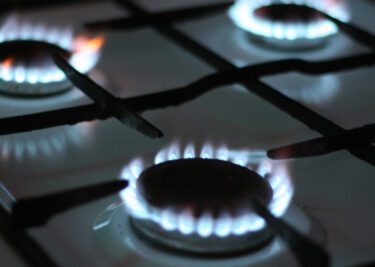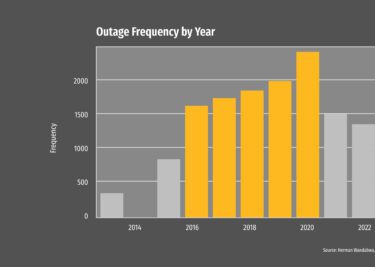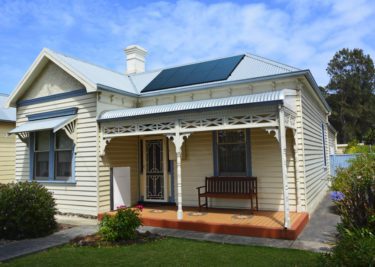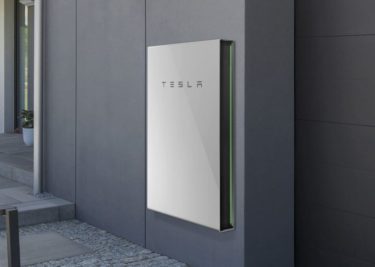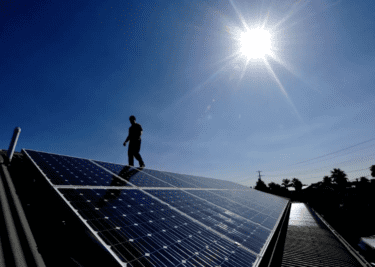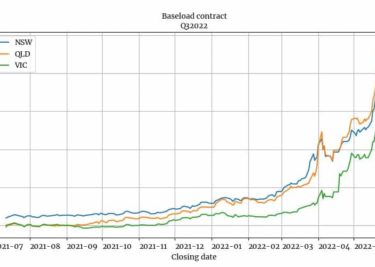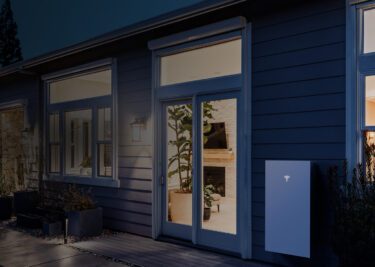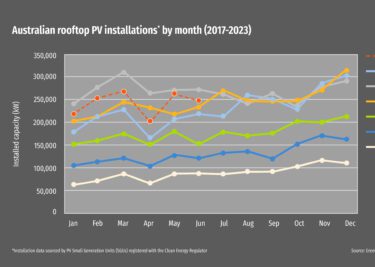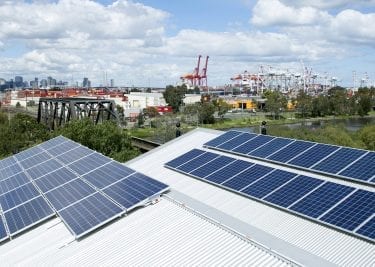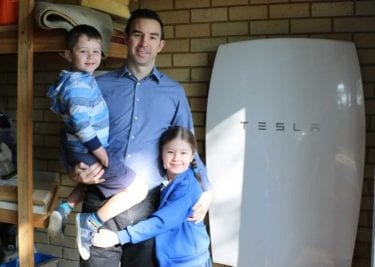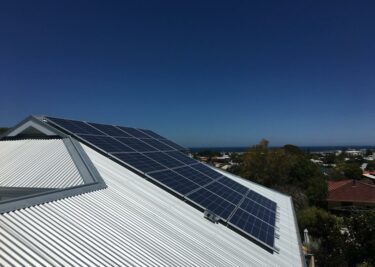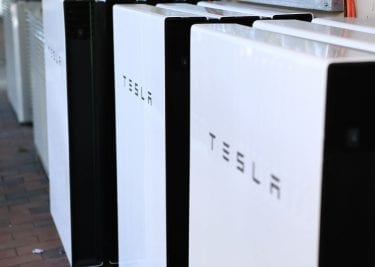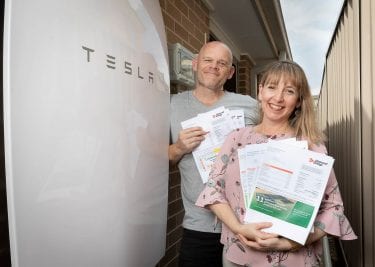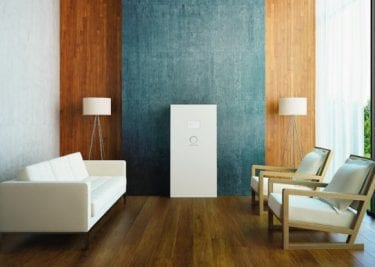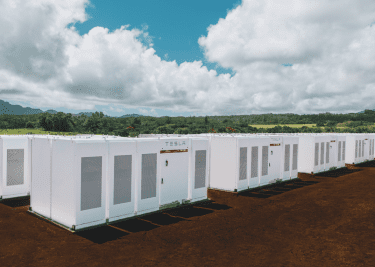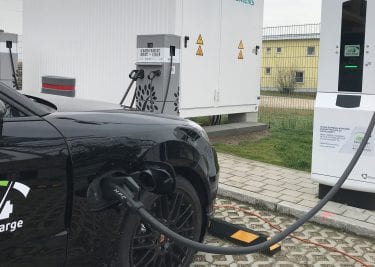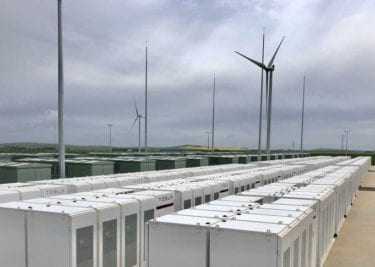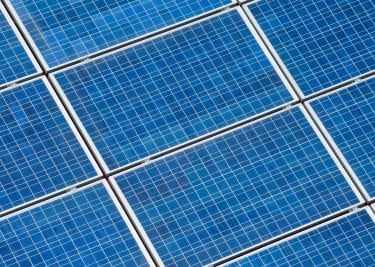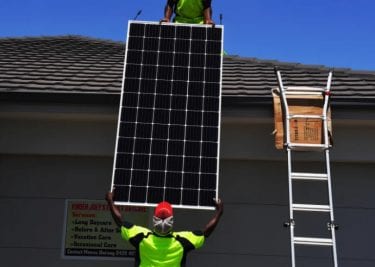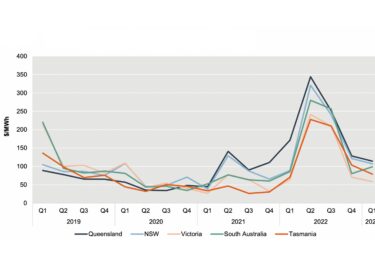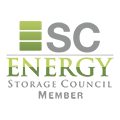 Homeowners in Queensland have the chance to receive a rebate of either $3000 or $4000 on a home solar battery. Only around the first 8000 homeowners will receive the cash-back offer, so those who move fast will reap the rewards.
Homeowners in Queensland have the chance to receive a rebate of either $3000 or $4000 on a home solar battery. Only around the first 8000 homeowners will receive the cash-back offer, so those who move fast will reap the rewards.
Household batteries are set to play a huge role in the Australian energy system of the future. The abundant solar power that is being produced in ever greater amounts on Australian rooftops will have the ability to be stored into the evening, when it is needed most. And batteries will help to stabilize the electricity network when there are fluctuations in solar or wind power output.
But the only way batteries can pull off this important trick is if there are enough of them installed in Aussie households. That’s why state governments are moving to bolster home battery installations, though the provision of supportive policies like battery rebates and cheap loans.
The Queensland government has been the most recent state to act, introducing its Battery Booster program, which was announced in December 2023 and went live today.
The Battery Booster subsidy provides rebates to Queensland households that install a residential solar battery alongside their new or existing rooftop PV system. The rebate is $3000 for households with an annual income of less than $180,000. For low-income households, bringing in less than $66,667 each year, they can pick up a rebate of $4000.
There are a few important conditions to the new Queensland battery subsidy:
- The home battery must have a capacity of 6 kWh or more
- Only residential battery systems on the approved list are eligible for the subsidy
- Only systems supplied by approved installers will be subsidized
- The household must have an existing rooftop solar system, with a minimum size of 5 kW, or be willing to install one
To receive the cash-back offer, the homeowner must first apply to QLD Department of Energy and Climate for conditional approval to go ahead with the system purchase.
In order to receive this approval, the homeowner will need a quote for one of the accepted home battery systems, from an authorized installer or a solar and storage retailer.
Natural Solar has a long track record in Queensland and has tallied up a number of impressive residential battery milestones along the way.
- Natural Solar commenced its Queensland operations in 2013 – longer than 97% of the other companies active today!
- In 2016, Natural Solar installed the first system where six Tesla Powerwalls were installed together – creating one, very powerful battery
- In 2020, Natural Solar partnered with the QLD government for the development of the state’s first “all battery” housing developments
- In 2021, Natural Solar partnered with Australia’s largest property developer Stockland for a major battery rollout across QLD master planned estates
The installation of solar batteries in the home is one of the most effective ways to dramatically reduce a household’s reliance on expensive and often carbon intensive grid power.
Victoria’s Energy Policy Centre has crunched the numbers on residential battery installations, alongside rooftop PV. They found that without a battery, the average Aussie household will still have to draw on the electricity grid for around 70% of their power usage over the course of the year.
Batteries for independence
In the early morning, in the evening, and during the night, most homes remain powered by grid electrons, and while homeowners may try to move activities that consume electricity to daylight hours – such as running the washing machine or vacuuming the floor – there is only so much “time shifting” of demand that is possible.
By adding a solar battery, however, the level of “solar self consumption” – the use of the solar energy produced on the roof inside the home – dramatically increases.
The Energy Policy Centre concludes that with a 5kWp rooftop system coupled with a 10kWh battery, that most homes would need to draw from the grid for only around 10% (up to 20%, for very big, power-hungry homes) of their electricity. It is a remarkable achievement and a promising sign of things to come.
There are around 60 different battery makers that are registered as approved products under the Queensland Battery Booster program. Leading battery suppliers like Tesla, Enphase, and sonnen have been approved under the rebate program.
As is all too common, online fraudsters try to exploit good policies and the QLD government was forced to issue a “scam alert” warning. In it, the government said: “Fraudulent, misleading or phishing websites could take advantage of Queenslanders wishing to participate in the program.”
Safety first
Another stipulation of the Battery Booster program is a requirement that the installed batteries are inspected after installation. Allowing for the inspection to take place is a condition of receiving the cash back from the government.
Safety is a key consideration when installing a solar battery in the home. When energy is being stored in a home it is of vital importance that fires do not occur, or that they can be easily contained if they were to happen.
The QLD government will appoint an independent inspector.
The inspection aspect of the Battery Booster program is a positive step to ensuring home battery safety, under the program. Sourcing batteries from reliable, experienced manufacturers and local retailers is also an important consideration for homeowners.
The leasing of solar and battery systems is popular with some homeowners. And, why not? It allows for systems to be installed immediately and then paid off, as a result of energy bill savings, over time.
However, to qualify for the Battery Booster the battery system must be paid for in full. Homeowners could source third-party financing, or draw down on their home loan, to pay for the battery and still receive the government rebate. But full payment for the battery is required.
The Battery Booster will accelerate battery uptake in Queensland. It is an exciting development and wonderful opportunity to homeowners in the state. But it is limited, so move fast and reap the rewards.
